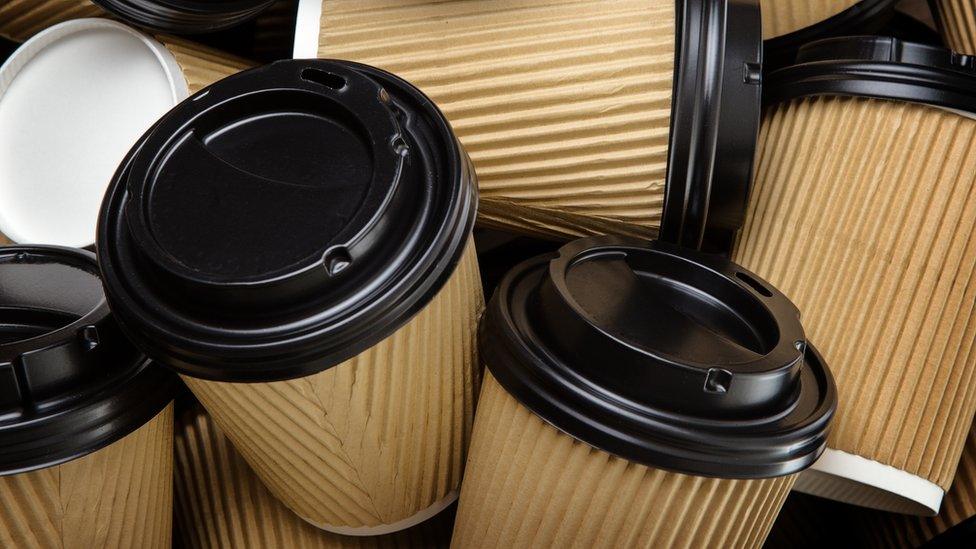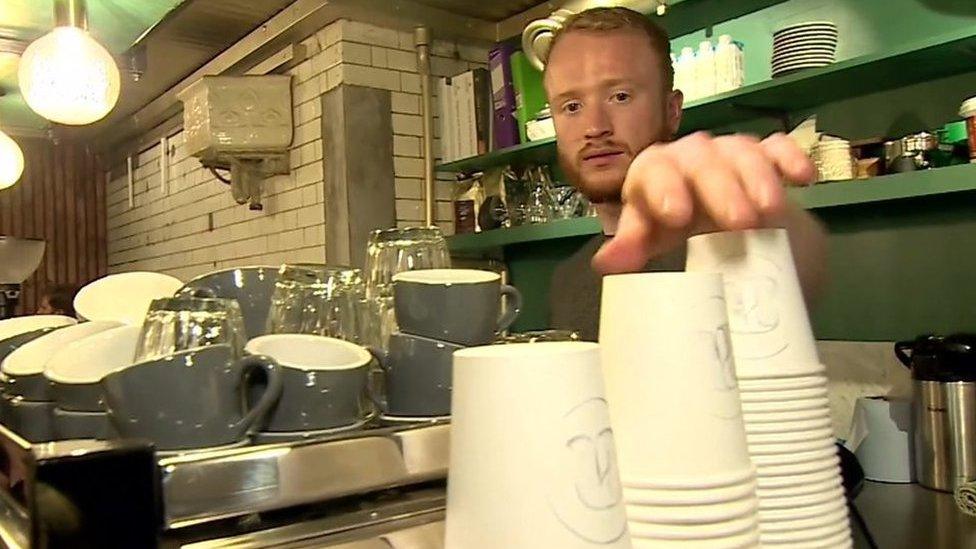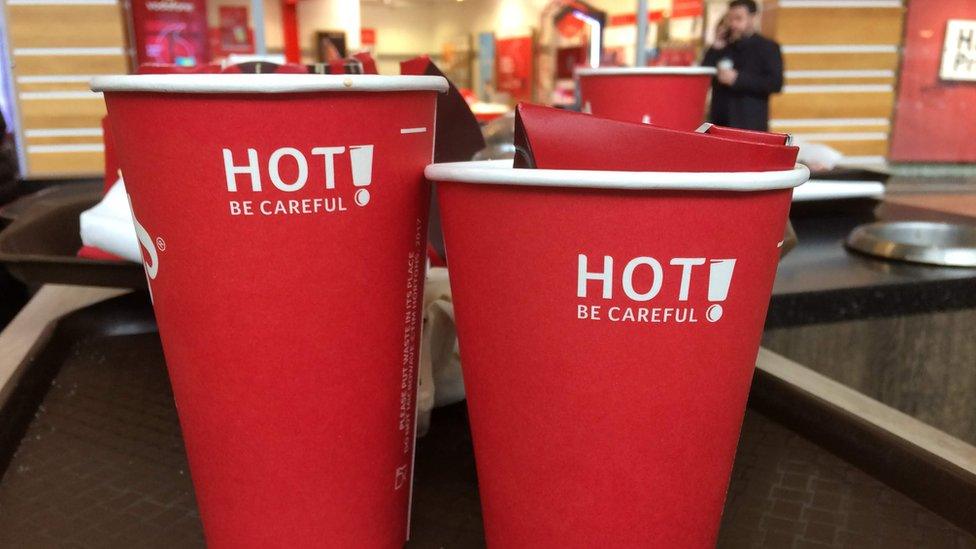Experts recommend 'latte levy' of 25p per cup
- Published

An expert panel has recommended a 20p to 25p charge on single-use cups
Experts have recommended the so-called "latte levy" should be set between 20p and 25p.
A panel of environmental advisers wants the charge made for each disposable cup to cut down on waste.
They said evidence pointed to charges being more effective than discounts in reducing the number of single-use cups.
The Scottish government has committed in principle to introducing the charge as part of its budget deal with the Greens.
The expert panel on environmental charging investigated the possibility and has published its findings recommending the levy.
It suggested introducing a national, mandatory requirement to sell drinks and disposable cups separately.
It also recommended banning non-recyclable expanded polystyrene/PVC beverage cups in line with the EU Single-Use Plastics Directive by 2021.
Ministers will now consider introducing this additional charge to help cut down on the estimated 200 million single-use coffee cups discarded every year in Scotland.

Research found that a charge would be more effective than discounts in reducing the number of single-use cups consumed
Environment Secretary Roseanna Cunningham said: "Disposable cups present an obvious littering issue, but there is ever-growing awareness within our society of the impact single-use plastic has on our wider environment.
"The scale of the issue is also clear - as is the expert panel's conclusion that no one measure alone will be effective: our approach to reducing single-cup use must involve a joined-up effort across government, business, communities and individuals."
The report also recommends promoting recycling and the use of reusable cups.
It is estimated that single-use disposable beverage cups generate around 4,000 tonnes of waste in Scotland each year.
Many disposable cups are made of paper with a waterproof plastic lining, and are difficult to recycle unless they are collected separately from other recyclable material and taken to specialist recycling facilities.
As a result they are often incinerated or go to landfill, creating carbon emissions and contributing to climate change.
'Change attitudes'
The panel said there is "no single solution" to cutting down on the use of disposable cups, and that promoting cultural and behavioural change is critical.
Panel chairwoman Dame Sue Bruce said: "Over the first year the panel has focused its attentions on single-use disposable beverage cups.
"We have asked questions about what we can do together in Scotland - as consumers, communities, producers, retailers and government - to radically change our attitudes and our use of single-use items.
"Our conclusion is that there needs to be a fundamental move away from single-use disposable beverage cups and not just to an improved model for recycling.
"We have recommended a range of measures to achieve this - including charging separately for disposable cups and developing pilots to promote reusable cups."

The Scottish government said it is already working to improve recycling rates and encourage behaviour change.
Scotland's Deposit Return Scheme will include drinks containers made of Polyethylene terephthalate (PET) plastic - used in plastic drinks bottles - as well as glass, and aluminium and steel cans.
Jenni Hume, campaign manager for the Have You Got The Bottle? campaign, welcomed the "bold" proposals.
She said: "The evidence is that charges and reusable cup systems can encourage both retailers and the public to move away from single-use cups, and the panel's recommendation that polystyrene and PVC cups be banned is also long overdue."
The Scottish Liberal Democrats and the Scottish Greens called for the "latte levy" to be brought in immediately.
The Scottish Retail Consortium said many retailers were already taking action to improve recycling and reduce the use of single-use cups.
The SRC's David Londsdale added: "Any new government measures must be proportionate and practical.
"There are still a number of questions around how such a charge would be levied, how it would interact with other environmental measures, how remittances to councils might work in practice, and how the government will ensure it is applied equally to all businesses to ensure a level playing field."
- Published21 February 2019

- Published5 January 2018
